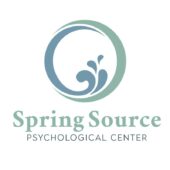
Trauma and PTSD therapists in River Falls, Wisconsin WI

Chuck Gray, Ph.D.
Psychologist
Rather than limit counseling to only one approach, I offer my clients what I think is best specifically for them from a wide array of expert approaches in my marriage and other counseling. In addition to leading seminars to train other professionals in marriage counseling, I have benefited by receiving extensive professional training from most of the leading marriage counseling experts in the country, including but not limited to John Gottman, Susan Johnson, John Gray, Harville Hendrix, Virginia Satyr, Ellyn Bader and Peter Pearson, Gary Brainard, Frank Pittman, Shirley Glass, Janice Abrahms Spring, and Neil Jacobson. In conducting counseling, I am fortunate to be able to choose from numerous resources including principles from Gottman's research, Emotionally Focused Therapy, Mars & Venus Counseling, Imago Therapy, Positive Therapy, Interpersonal Therapy, Systems Therapy, Cognitive-Behavioral Therapy, Psychodynamic Therapy, Rogerian Therapy, Integrative Therapy, Humanistic Therapy, Transactional Analysis, Reality Therapy, Rational Emotive Therapy, Gestalt Techniques, NLP, and EMDR. I also offer counseling tools that I personally developed here in Houston.
Debbie Millman
Licensed Professional Counselor, LPC
I am trained in Eye Movement Desensitization Reprocessing (EMDR) and Brainspotting, both of which have been invaluable tools in my own personal recovery as well as the work I have done with many clients who struggle with the impacts of trauma.
Dr. Paul Daanen
Psychologist, PsyD
I specialize in the assessment and treatment of PTSD and cPTSD. As mentioned elsewhere here, I utilize a multifaceted approach that is customized to the needs of each individual person I work with. When suitable, and with sufficient preparation, I emphasize EMDR as my treatment approach of choice.
Utah Center for Evidence Based Treatment
Psychologist, Ph.D.
The UCEBT Trauma, Stress, and Resilience (TSR) Program provides expert care in the treatment of stress and trauma-related issues.
Most people at some point in their lives will experience a trauma or other difficult event, such as a loss of a loved one, medical illness, financial stressors, work burnout, divorce, etc. Depending upon our unique past and current circumstances, these events impact each of us differently. In the aftermath, some may develop symptoms of posttraumatic stress disorder (PTSD), depression, grief, or experience other life challenges. In spite of our best efforts, sometimes the problems persist and common coping strategies (like isolation, working long hours, alcohol, etc.) can create new problems.
Fortunately, there are now several proven therapies to get people unstuck and tap into our natural human ability to heal after a painful life event. Our center is committed to offering the most effective treatment options for both supporting you during a difficult period as well as long-term skills to foster resiliency for the future.
There are several gold standard evidence-based treatments right now for trauma. Our clinicians in this program have formal training and expertise in:
Acceptance and Commitment Therapy
Cognitive Processing Therapy -- CPT is a therapy that focuses on helping individuals identify and challenge unhelpful thoughts and beliefs related to their traumatic experiences. It aims to promote cognitive restructuring and reduce distressing symptoms. CPT has been recommended as treatment for post-traumatic stress disorder (PTSD) by organizations such as the American Psychological Association (APA) and the U.S. Department of Veterans Affairs (VA/DoD). This episode of This American Life does a great job capturing what to expect in CPT and illustrating its effectiveness: https://www.thisamericanlife.org/682/ten-sessions
Cognitive Behavior Therapy for Insomnia
Trauma-focused Cognitive Behavioral Therapy Interventions -- TF-CBT is a structured therapy that focuses on helping individuals process and cope with traumatic experiences. It combines cognitive-behavioral techniques with trauma-specific interventions. TF-CBT has also been widely recommended as a treatment PTSD by the APA and the VA/DoD.
Eye Movement Desensitization and Reprocessing Therapy (EMDR) -- This modality uses eye movements or other forms of bilateral stimulation to help individuals process traumatic memories and reduce distressing symptoms. In contrast to the "top-down approaches" listed above, this is a "bottom-up approach," meaning that it starts with addressing the physiological and sensory aspects of an individual's experience before moving on to cognitive or higher-order processes. This approach recognizes that trauma can have a profound impact on the nervous system and bodily sensations. The goal is to help individuals process and release traumatic experiences by accessing the body's wisdom and resources. By directly targeting the limbic system (the feeling center of the brain) and sensory receptors throughout the body, a bottom-up approach aims to undo trauma's imprint on the body and promote healing. It acknowledges that trauma responses are not solely cognitive but also involve physiological and sensory aspects.
Prolonged Exposure -- PE is a type of therapy that involves gradually and systematically exposing individuals to trauma-related memories, situations, or objects that they have been avoiding. The goal is to help individuals confront and process their traumatic experiences, reducing avoidance and fear. PE has also been recommended as a treatment for PTSD by the APA and the VA/DoD.
The Gottman Method for Couples Therapy
Written Exposure Therapy (WET) -- Sometimes, flashbacks can be so debilitating and spike our SUDS so suddenly, that all of the above-mentioned modalities end up doing more harm than good. This modality is a brief, trauma-focused talk therapy that involves a series of [typically] five 30- to 45- minute sessions. The therapy involves writing about the thoughts and feelings experienced during the traumatic event, which allows individuals to engage with the memory and potentially overcome shame or embarrassment associated with the experience. The goal is to help individuals find new ways to think about their traumatic experiences and gain relief from PTSD symptoms. There is little 'down time' between sessions, meaning an individual could schedule all five sessions back-to-back and effectively stop flashbacks or other reexperiencing symptoms within a week, which no other modality can match in terms of efficiency.
SpringSource Psychological Center, PLLC
Psychologist
At SpringSource, we believe in using a combination of exposure and grounding skills-based techniques to help individuals heal from both chronic and episodic traumatic experiences. Our therapists have training in Cognitive Processing Therapy and Written Expressive Therapy as well as other exposure-based techniques.





